When we talk about the smartest dog breeds and what makes them intelligent, we’re diving into a fascinating world of canine smarts. From genes to behavior and even training techniques, there’s so much to learn. Together, we’ll explore the factors that influence dog intelligence, meet some of the top breeds, and discover how we can help our furry friends stay sharp and engaged. With the right knowledge, we can unlock the secrets to raising our clever companions!
Key Insights
- We love clever dogs that learn quickly.
- Our favorites include Border Collies and Poodles.
- Smart breeds often need more mental games.
- They usually bond closely with us.
- Training them can be a fun experience.
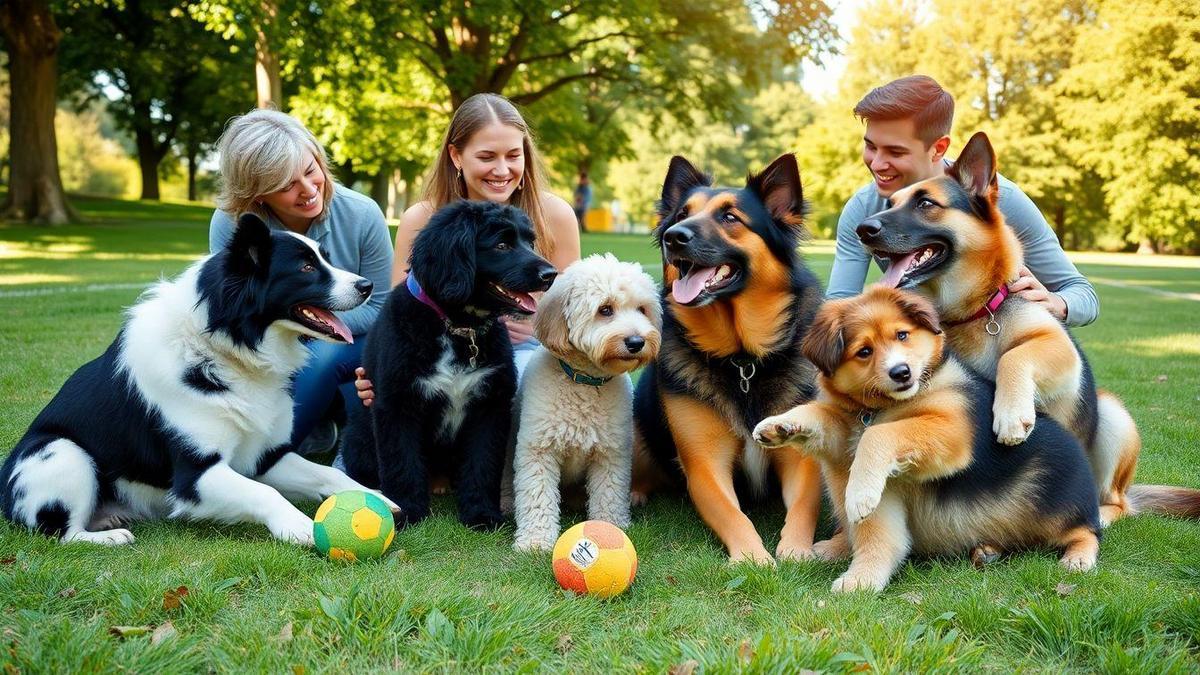
Understanding Dog Breed Intelligence
What Makes a Dog Breed Smart?
When we talk about dog intelligence, it’s not just about how quickly they can learn tricks. It’s also about how they react to situations, solve problems, and communicate with us. Some breeds seem to just get it, don’t they? They pick up commands like they’re reading a book!
But what really makes a dog breed smart? Well, it often comes down to learning ability, adaptability, and problem-solving skills. For instance, breeds like the Border Collie and Poodle are known for their quick learning and ability to understand complex commands. They thrive on mental challenges and love to show off their skills!
The Role of Genetics in Canine Intelligence
Genetics plays a huge role in a dog’s intelligence. Just like us, some dogs are born with certain traits. For example, herding breeds like the Australian Shepherd are bred to think on their feet and make quick decisions. This genetic background shapes their behavior and intelligence.
Here’s a simple table to illustrate how genetics can influence intelligence:
| Dog Breed | Genetic Background | Typical Intelligence Traits |
|---|---|---|
| Border Collie | Herding | Quick learners, excellent problem solvers |
| Poodle | Companion | Highly trainable, adaptable |
| German Shepherd | Working | Loyal, protective, and eager to learn |
| Beagle | Hunting | Curious, great scent tracking |
Factors Influencing Dog Breed Intelligence
A dog’s intelligence isn’t just about genetics. Several other factors come into play:
- Training: Regular training helps boost a dog’s intelligence. The more we teach them, the smarter they become! Consider utilizing effective training techniques to maximize their learning.
- Socialization: Dogs that are well-socialized tend to be more adaptable and better at problem-solving.
- Environment: A stimulating environment with toys and challenges can enhance a dog’s intelligence. Think of it as giving them a workout for their brains!
In summary, dog intelligence is a mix of genetics, training, socialization, and environment. By understanding these factors, we can help our furry friends reach their full potential.

Top Intelligent Dog Breeds
The Smartest Dog Breeds and What Makes Them Intelligent
When we think about intelligent dogs, we often picture those furry friends who seem to understand us without saying a word. It’s like they have a sixth sense! So, what makes these pups so smart? Well, it’s a mix of their ability to learn commands quickly, solve problems, and adapt to new situations. For instance, breeds like the Border Collie and Poodle are known for their quick thinking and problem-solving skills. They can learn a new trick in just a few repetitions!
Ranking Dog Breeds by Intelligence
Here’s a fun way to look at it: we can rank dog breeds based on their intelligence. This ranking often comes from how fast they learn commands and how well they perform tasks. Below is a table that gives us a clear view of some of the top contenders:
| Rank | Breed | Key Traits |
|---|---|---|
| 1 | Border Collie | Highly trainable, energetic |
| 2 | Poodle | Smart, eager to please |
| 3 | German Shepherd | Loyal, protective, quick learner |
| 4 | Golden Retriever | Friendly, adaptable, easy to train |
| 5 | Doberman Pinscher | Alert, confident, intelligent |
These breeds not only shine in obedience but also in their ability to think on their paws!
Popular Breeds Known for Their Intelligence
Let’s dive a bit deeper into some of these breeds. We can’t help but admire how these dogs stand out in the canine world.
- Border Collie: Known for their herding skills, they need a lot of mental and physical activity. They thrive on challenges!
- Poodle: Don’t let their fancy haircuts fool you; they are super smart and love to learn. They can be trained for various tasks, from agility to therapy work.
- German Shepherd: This breed is not just a loyal companion; they also make excellent service dogs. Their intelligence helps them learn complex tasks quickly.
- Golden Retriever: These friendly pups are great family dogs and are often used as therapy dogs. Their ability to connect with people is remarkable.
- Doberman Pinscher: With their sharp minds, Dobies excel in obedience training. They are also known for being protective and loyal.
These breeds are just the tip of the iceberg when it comes to The Smartest Dog Breeds and What Makes Them Intelligent. Each one offers a unique blend of traits that make them stand out in their own right.
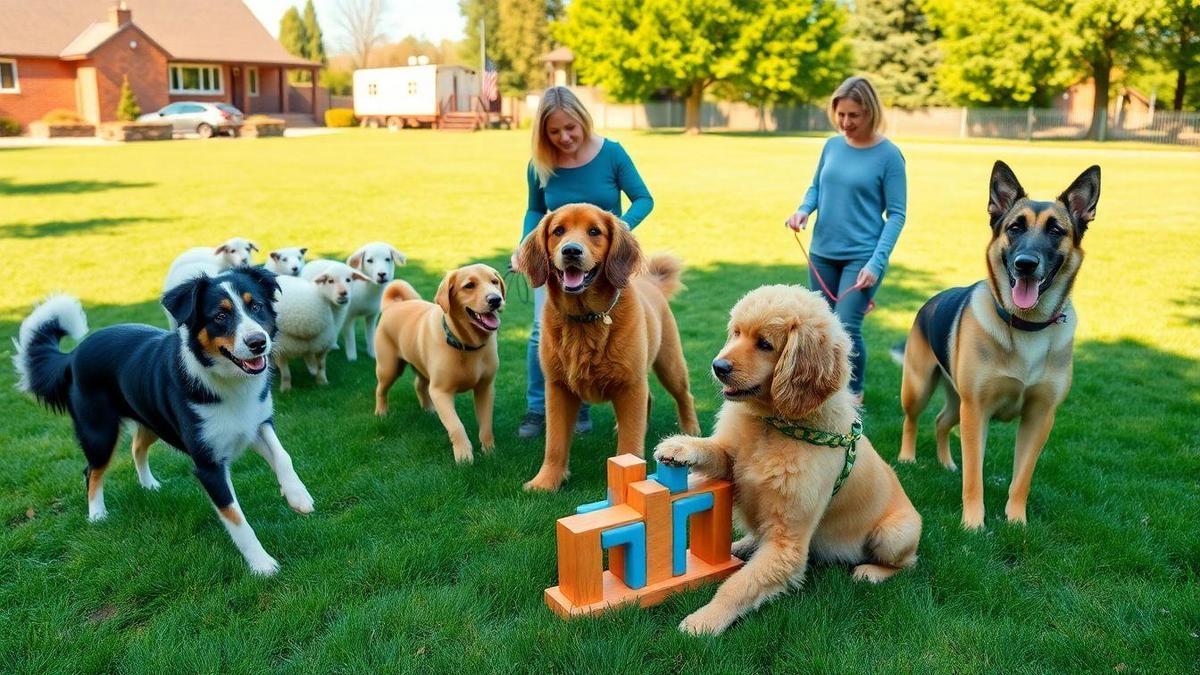
Behavioral Traits of Intelligent Dogs
Common Traits in Smart Dog Breeds
When we think about smart dogs, a few traits pop into our heads. These breeds often show quick learning, problem-solving skills, and a strong desire to please. They’re like our little furry Einsteins! Here are some common traits we notice:
- Quick Learners: They pick up tricks and commands in no time.
- Curious Nature: They love exploring their surroundings and figuring things out.
- Playful Spirit: They often use playtime to learn and bond with us.
- Strong Bonding: They tend to form close connections with their humans, wanting to be involved in our daily lives.
How Intelligence Affects Dog Behavior
Intelligence in dogs can shape their behavior in many ways. For instance, smart dogs often need more mental stimulation. If we don’t provide it, they might get bored and find their own fun, which can lead to some not-so-great habits. Here’s how intelligence can influence their actions:
- Behavioral Challenges: Without proper engagement, they may become mischievous.
- Social Skills: Intelligent dogs usually get along well with other pets and people.
- Training Ease: They often respond better to training, making them a joy to work with.
Recognizing Smart Dog Characteristics
So, how do we spot a smart dog? Let’s break it down. Here’s a handy table that shows some characteristics we can look for:
| Characteristic | Description |
|---|---|
| Alertness | They are aware of their surroundings and respond quickly. |
| Problem-solving Skills | They can figure out puzzles or challenges we give them. |
| Adaptability | They adjust well to new situations or environments. |
| Communication | They often express their needs clearly, whether through barking or body language. |
By keeping an eye out for these traits, we can better understand our furry companions and their needs.
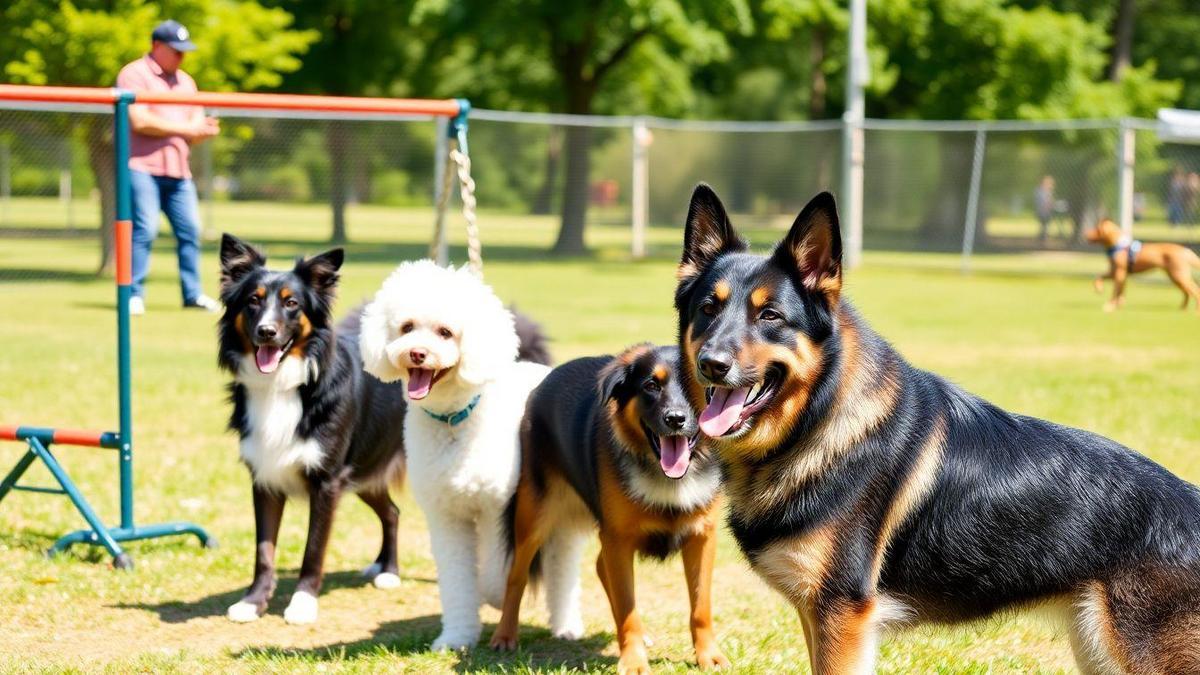
Training the Smartest Dog Breeds
Best Dog Breeds for Training and Obedience
When we think about the smartest dog breeds and what makes them intelligent, a few names pop up right away. These breeds are known for their quick learning and ability to follow commands. Here’s a quick list of some of the best dog breeds for training:
| Dog Breed | Key Traits |
|---|---|
| Border Collie | Highly energetic and eager to learn. |
| Poodle | Intelligent and very versatile. |
| German Shepherd | Loyal and protective, great for obedience. |
| Golden Retriever | Friendly and easy to train. |
| Doberman Pinscher | Alert and responsive to commands. |
These breeds not only shine in obedience but also excel in various activities, like agility and service work. They’re the ones we can count on to learn new tricks in a flash!
Tips for Training Intelligent Dogs
Training smart dogs can be a fun adventure for us! Here are some tips to keep in mind while we embark on this journey:
- Start Early: The earlier we start training, the better. Puppies are like sponges, soaking up everything we teach them.
- Be Consistent: Using the same commands and signals helps our dogs understand what we want.
- Keep It Positive: Rewarding good behavior with treats or praise makes training enjoyable for our furry friends. Techniques like positive reinforcement can be particularly effective.
- Short Sessions: Dogs can get bored easily. Keeping training sessions short and sweet helps them stay focused.
- Mix It Up: Changing up the routine keeps our dogs engaged and excited to learn.
Training Techniques for Smart Dog Breeds
Now, let’s talk about some training techniques that work well for our clever companions.
- Clicker Training: This method uses a click sound to mark the right behavior. It’s clear and helps our dogs understand what they did right.
- Positive Reinforcement: This is all about rewarding our dogs for good behavior. Whether it’s a treat, a toy, or simply our praise, positive reinforcement goes a long way.
- Socialization: Introducing our dogs to different people, places, and other animals helps them become well-rounded. It’s like giving them a crash course in the world around them!
- Interactive Games: Playing games that challenge our dogs mentally can be a great way to train. Puzzle toys or hide-and-seek can keep their minds sharp.
- Modeling Behavior: Sometimes, showing our dogs what to do can be more effective than just telling them. If we want them to sit, we can sit down ourselves!
Training the smartest dog breeds can be a rewarding experience for us. With patience and the right techniques, we can help our furry friends shine!

The Importance of Mental Stimulation
Keeping Intelligent Dogs Engaged
We all know that dogs are more than just furry companions; they’re super smart! Some breeds, like Border Collies and Poodles, are particularly clever. These intelligent dogs need more than just physical exercise; they crave mental stimulation to keep their minds sharp. If we don’t give them enough to think about, they may get bored and act out.
Think of it this way: if we were stuck in a room with nothing to do, we’d probably start getting restless too. So, how can we keep our brilliant pups engaged?
Activities for Smart Dog Breeds
Here are some fun activities that can keep our smart dog breeds entertained:
- Puzzle Toys: These toys challenge our dogs to think and problem-solve. They come in all shapes and sizes, and we can fill them with treats to keep our dogs motivated.
- Training Sessions: Teaching our dogs new tricks or commands is a great way to bond with them. Plus, it keeps their minds active. We can even turn it into a game!
- Interactive Games: Games like hide-and-seek or fetch with a twist can be exciting. We can hide treats around the house and let our dogs sniff them out.
- Agility Courses: Setting up a mini agility course in our backyard can be a blast. It challenges our dogs physically and mentally.
- Socialization: Meeting other dogs can also stimulate our pups. Dog parks or playdates can provide both fun and learning experiences.
Benefits of Mental Challenges for Dogs
Engaging our dogs in mental challenges has a lot of perks. Here’s a quick look at the benefits:
| Benefit | Description |
|---|---|
| Reduces Boredom | Keeps our dogs occupied and happy. |
| Improves Behavior | Less boredom means fewer bad habits. |
| Strengthens Bond | Training together builds trust and connection. |
| Enhances Problem-Solving | Helps dogs learn how to think through challenges. |
| Boosts Confidence | Completing tasks makes dogs feel accomplished. |
When we provide these mental challenges, we’re not just keeping our dogs busy; we’re also helping them grow. It’s a win-win situation!
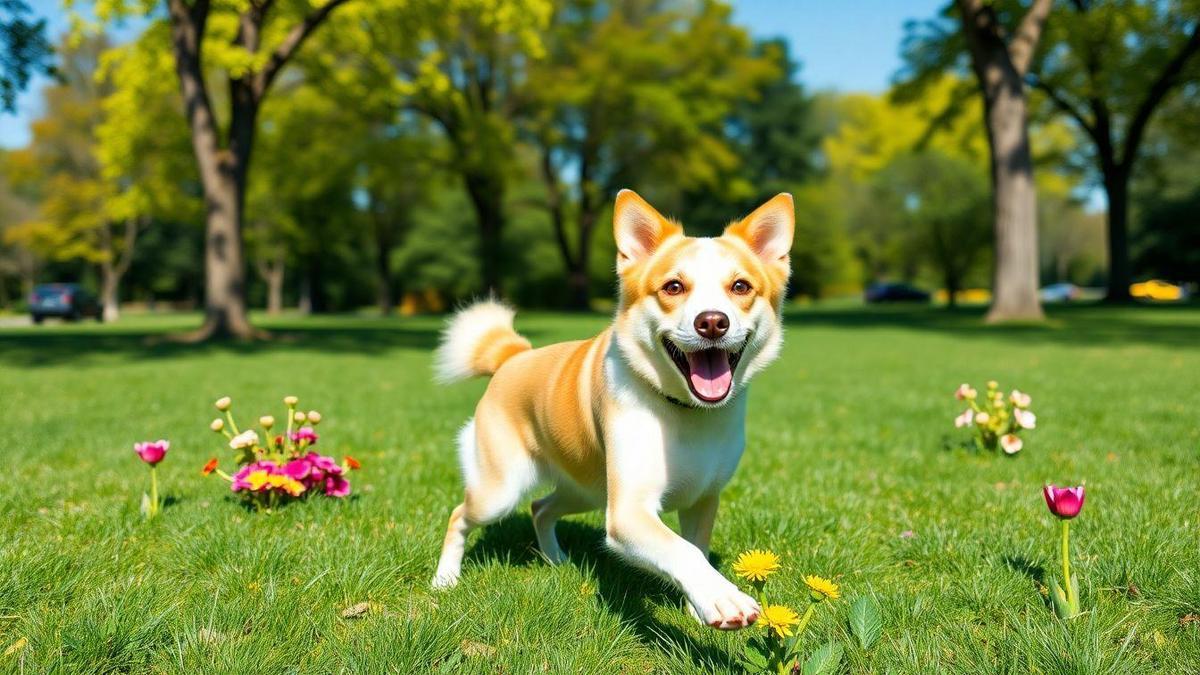
Health Considerations for Smart Breeds
Common Health Issues in Intelligent Dog Breeds
When we think about smart dog breeds, we often picture their quick wit and playful spirit. But like all dogs, these clever companions can face certain health challenges. Some common issues we might encounter include:
- Hip Dysplasia: This is a genetic condition affecting the hip joint. It can be painful and lead to arthritis.
- Eye Problems: Breeds like Border Collies may suffer from progressive retinal atrophy, which can lead to blindness.
- Skin Conditions: Allergies are common in many smart breeds, causing itching and discomfort.
- Obesity: With their high intelligence, they can get bored easily, leading to less exercise and weight gain. To combat this, we should ensure they have a proper diet tailored to their needs.
Understanding these potential problems helps us keep our furry friends healthy and happy.
Preventive Care for Smart Dogs
Taking care of our smart dogs goes beyond just feeding them and giving them love. We need to be proactive. Here are some preventive care tips we can follow:
- Regular Exercise: Keeping our dogs active helps prevent obesity and keeps their minds sharp.
- Balanced Diet: A nutritious diet tailored to their needs is essential for their overall health.
- Dental Care: Regular brushing and dental check-ups can prevent serious dental issues. You might want to check out how often to brush your dog’s teeth for more information.
By focusing on these areas, we can help our intelligent dogs live longer, healthier lives.
Importance of Regular Vet Check-ups
We can’t stress enough how vital it is to schedule regular vet check-ups for our smart breeds. These visits help catch any health issues early on. During these check-ups, our vet can:
- Check for any signs of illness
- Update vaccinations
- Discuss dietary needs
By keeping up with these appointments, we’re not just being responsible pet owners; we’re ensuring our dogs have the best chance at a long and vibrant life.
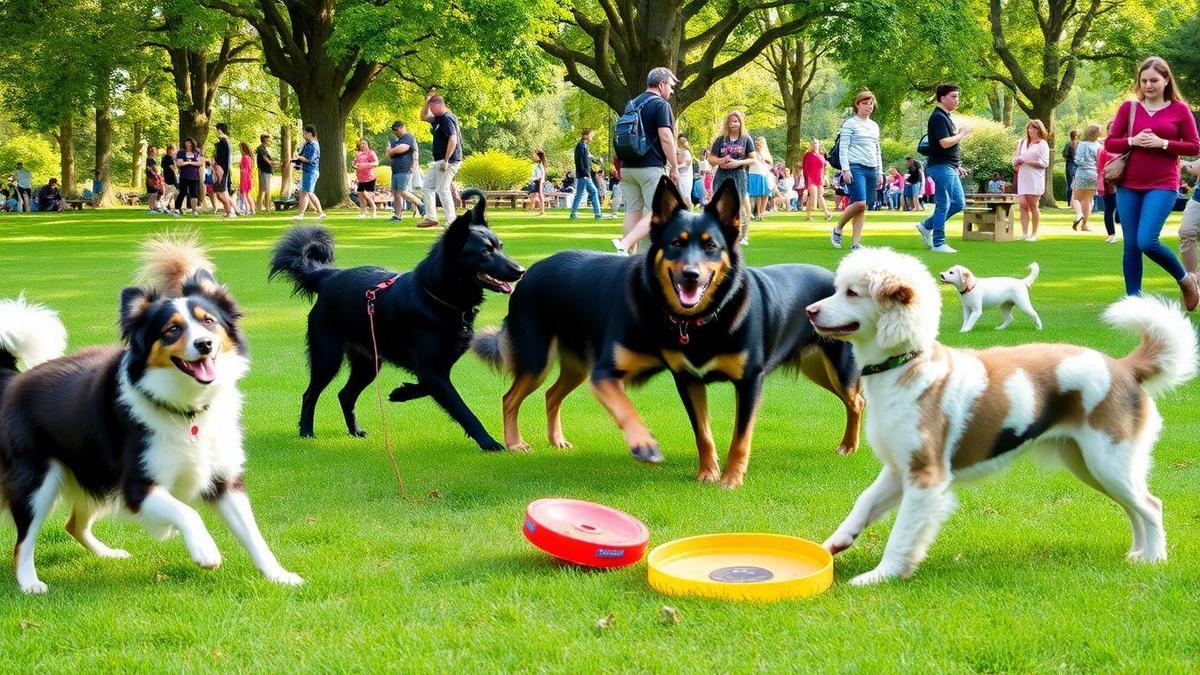
Socialization Needs of Smart Dog Breeds
Why Socialization is Key for Intelligent Dogs
When we think about smart dog breeds, we often picture them as quick learners and eager to please. But there’s more to them than just being brainy! Socialization is crucial for these dogs. It helps them feel comfortable in different situations and around various people and animals. Without proper socialization, even the smartest dog can become anxious or fearful.
For instance, a well-socialized Border Collie is likely to thrive in a bustling park, while one that hasn’t been socialized may shy away from new experiences. Socialization helps them build confidence and reduces the chances of developing behavioral issues.
Best Practices for Socializing Smart Breeds
Now that we know why socialization is important, let’s dive into some best practices. Here are a few tips we can follow:
- Start Early: The earlier we introduce our pups to new experiences, the better. Puppies are like sponges; they soak up everything!
- Expose Them to Different Environments: Take them to various places—parks, stores, and even busy streets. This helps them adapt to different sounds and sights.
- Meet New People and Dogs: Arrange playdates with friendly dogs and invite friends over. This will teach our dogs how to interact with others.
- Use Positive Reinforcement: Reward them with treats and praise when they handle new situations well. This builds a positive association with socialization.
Building Confidence in Smart Dogs
Building confidence in our smart dogs is essential. Here’s how we can do it:
| Activity | Description |
|---|---|
| Training Sessions | Regular training boosts their confidence. |
| Obedience Classes | Group classes expose them to other dogs and people. |
| Exploration Walks | Take them on walks in new places to explore. |
| Interactive Play | Engage them in games that challenge their minds. |
By incorporating these activities into our routine, we can help our dogs grow into well-rounded companions.
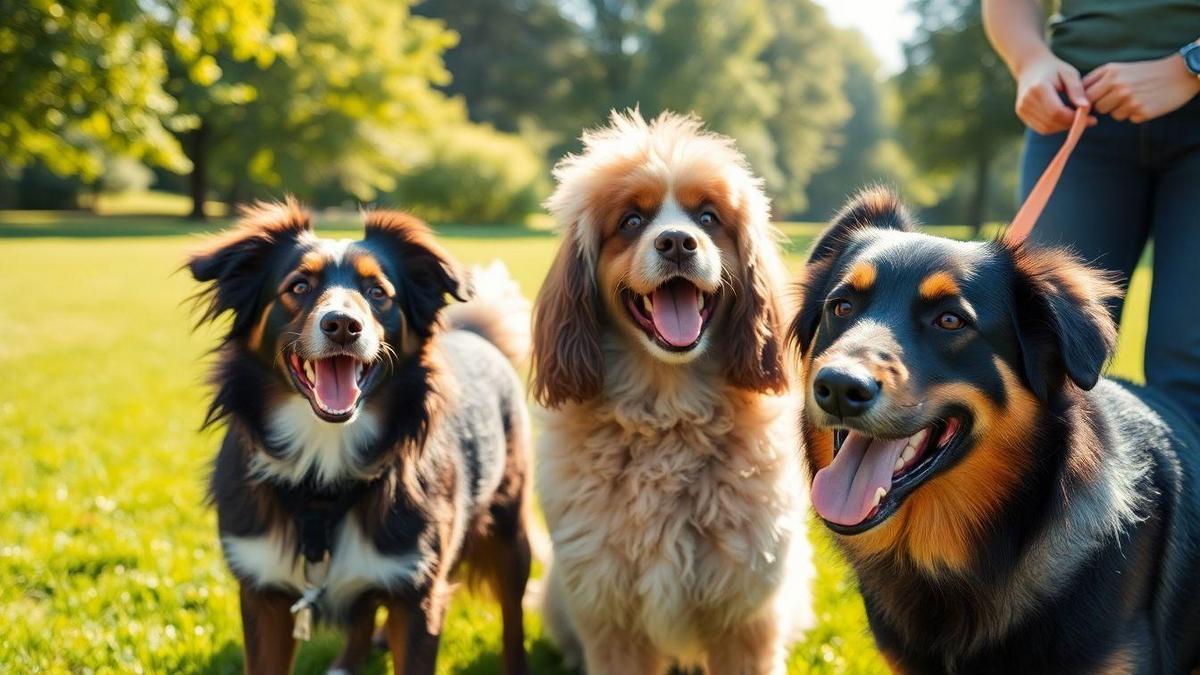
The Lifespan of Intelligent Dog Breeds
Average Lifespan of Top Intelligent Dog Breeds
When we talk about intelligent dog breeds, we often think of their smarts and skills. But, we should also consider how long they might be with us. Here’s a quick look at the average lifespans of some of the smartest dog breeds:
| Dog Breed | Average Lifespan |
|---|---|
| Border Collie | 12-15 years |
| Poodle | 12-15 years |
| German Shepherd | 9-13 years |
| Golden Retriever | 10-12 years |
| Doberman Pinscher | 10-12 years |
These numbers give us a good idea of what to expect. Some breeds live longer than others, and that can affect how we care for them throughout their lives.
Factors Affecting Lifespan in Smart Dogs
Several things can affect how long our furry friends live. Here are a few key factors to keep in mind:
- Genetics: Just like people, some dogs are prone to certain health issues based on their breed.
- Diet: Feeding our dogs a balanced diet can help keep them healthy and strong. For more on this, check out the best diet for your dog’s age and activity level.
- Exercise: Regular activity is crucial. It keeps them fit and can help prevent obesity-related issues.
- Veterinary Care: Regular check-ups can catch problems early and keep our dogs on track.
Understanding these factors helps us provide better care and support for our intelligent companions.
Caring for Aging Intelligent Dogs
As our dogs grow older, they may need a bit more love and attention. Here are some tips for caring for our aging smart dogs:
- Regular Vet Visits: Keeping up with check-ups is vital. It helps us catch any health issues before they become serious.
- Adjust Diet: Older dogs may need a diet that’s easier on their stomachs. We might consider switching to senior dog food.
- Gentle Exercise: While they still need to move, we should tailor their exercise to what they can handle. Shorter, more frequent walks can be great.
- Mental Stimulation: Smart dogs love to think! Puzzle toys or training sessions can keep their minds sharp even as they age.
By focusing on these areas, we can help our intelligent dogs enjoy their golden years to the fullest.

Choosing the Right Smart Dog for Your Family
Assessing Your Lifestyle for Dog Breed Intelligence
When we’re thinking about adding a furry friend to our family, it’s crucial to assess our lifestyle. Different dog breeds have different needs and temperaments. Some dogs thrive in active homes, while others prefer a more laid-back environment.
Let’s take a moment to think about our daily routines. Do we spend most of our day at home, or are we often on the go? For instance, if we have a busy schedule, a breed that requires a lot of exercise might not be the best match. On the other hand, if we have plenty of time to play and train, we might want a breed that’s known for its intelligence and energy.
Matching Dog Breeds to Family Needs
Now that we’ve looked at our lifestyle, it’s time to match it with the right dog breed. Here’s a simple table to help us out:
| Dog Breed | Energy Level | Intelligence | Family-Friendly |
|---|---|---|---|
| Labrador Retriever | High | Very High | Yes |
| Bulldog | Low | Moderate | Yes |
| Poodle | Moderate | Very High | Yes |
| Beagle | Moderate | High | Yes |
| Shih Tzu | Low | Moderate | Yes |
Each of these breeds has its own personality traits. For example, Labrador Retrievers are known for their friendly nature and high intelligence. They love to play and need a lot of exercise. On the flip side, Bulldogs are more relaxed and don’t need as much physical activity, making them great for families who prefer a calm companion.
Finding the Perfect Smart Dog for You
Finding the right dog is like searching for a needle in a haystack, but it can be a fun adventure! We should look for dogs that fit our needs and lifestyle. If we want a dog that’s quick to learn, we might lean towards the smartest dog breeds.
Some of the smartest breeds include:
- Border Collie: Known for their herding skills and high intelligence.
- German Shepherd: Loyal and great for families, they excel in training.
- Golden Retriever: Friendly and eager to please, making them easy to train.
In the end, it’s about finding a dog that fits our family dynamics. We want a dog that can keep up with our energy and also be a loving companion. So, let’s think about what we want in a dog and match that with the right breed.
Conclusion
In wrapping up our exploration of the smartest dog breeds and what makes them intelligent, we’ve uncovered a treasure trove of insights that can help us appreciate our furry companions even more. From their quick learning abilities to their problem-solving skills, it’s clear that intelligence in dogs is multi-faceted. By understanding the genetic influences, providing the right training, and ensuring they have ample mental stimulation, we can nurture their smarts and strengthen our bond with them.
Remember, every dog is unique, and their intelligence can shine in various ways. So, let’s embrace their quirks and provide them with the love and challenges they crave. After all, a happy dog is a smart dog! If you’re eager to dive deeper into the world of our canine friends, don’t hesitate to check out more articles at redeversatil.com. Happy reading!
Frequently asked questions
What are the smartest dog breeds and what makes them intelligent?
The smartest dog breeds include Border Collies, Poodles, and German Shepherds. Their intelligence comes from being quick learners and eager to please us.
How can we tell if a dog is smart?
We can tell if a dog is smart by how fast they learn tricks. Smart dogs also understand commands quickly and can solve problems on their own.
Can all dog breeds learn the same things?
Not all dog breeds can learn the same things. Some breeds are more driven and focused. The smartest dog breeds and what makes them intelligent can differ greatly among different breeds.
How can we train a smart dog?
We can train a smart dog by using positive reinforcement. That means giving them treats or praise when they learn something new. Keeping training fun helps too!
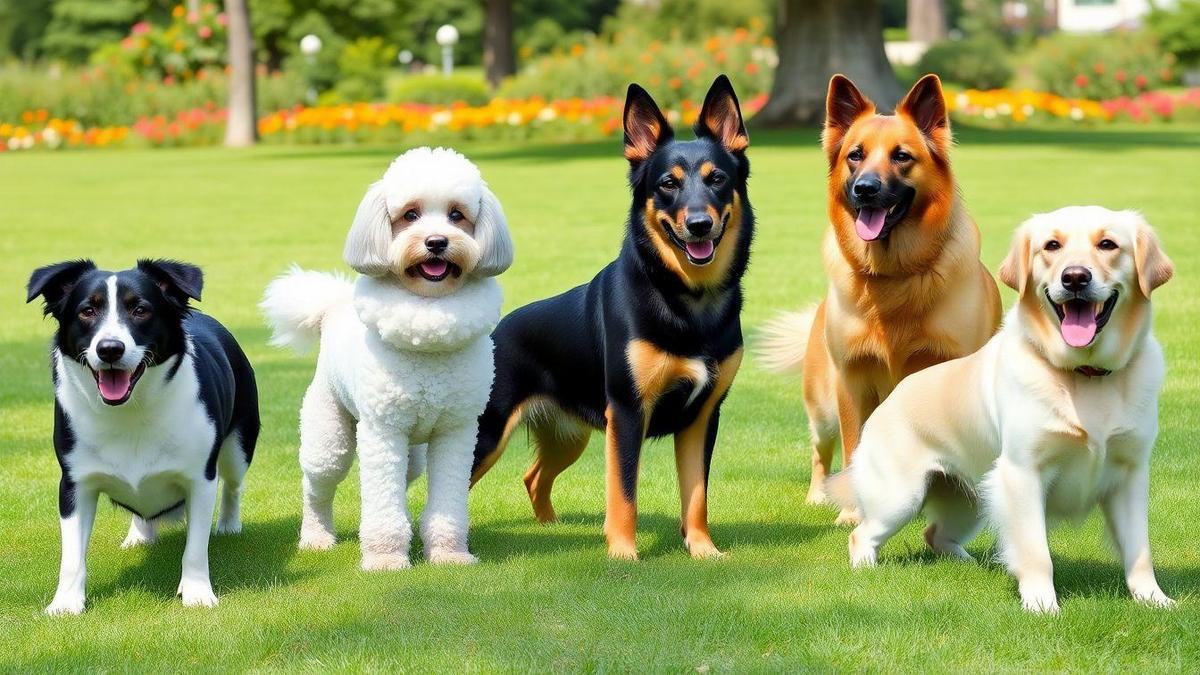
1 comentário em “The Smartest Dog Breeds and Their Traits”